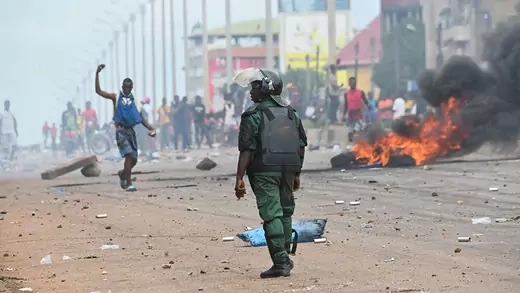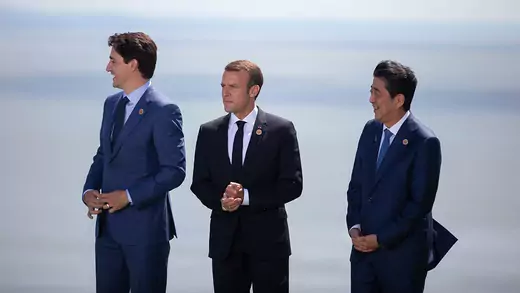- Iran
- Israel-Hamas
-
Topics
FeaturedIntroduction Over the last several decades, governments have collectively pledged to slow global warming. But despite intensified diplomacy, the world is already facing the consequences of climate…
-
Regions
FeaturedIntroduction Throughout its decades of independence, Myanmar has struggled with military rule, civil war, poor governance, and widespread poverty. A military coup in February 2021 dashed hopes for…
Backgrounder by Lindsay Maizland January 31, 2022
-
Explainers
FeaturedDuring the 2020 presidential campaign, Joe Biden promised that his administration would make a “historic effort” to reduce long-running racial inequities in health. Tobacco use—the leading cause of p…
Interactive by Olivia Angelino, Thomas J. Bollyky, Elle Ruggiero and Isabella Turilli February 1, 2023 Global Health Program
-
Research & Analysis
Featured
Terrorism and Counterterrorism
Violence around U.S. elections in 2024 could not only destabilize American democracy but also embolden autocrats across the world. Jacob Ware recommends that political leaders take steps to shore up civic trust and remove the opportunity for violence ahead of the 2024 election season.Contingency Planning Memorandum by Jacob Ware April 17, 2024 Center for Preventive Action
-
Communities
Featured
Webinar with Carolyn Kissane and Irina A. Faskianos April 12, 2023
-
Events
FeaturedJohn Kerry discusses his work as U.S. special presidential envoy for climate, the challenges the United States faces, and the Biden administration’s priorities as it continues to address climate chan…
Virtual Event with John F. Kerry and Michael Froman March 1, 2024
- Related Sites
- More
April 29, 2021
CompetitivenessTo manage the increasingly stark geopolitical power shifts of the past decade-plus, the United States should pursue arms control strategies that regulate rivalry and introduce a broader array of reci…

March 25, 2021
Middle East and North AfricaGreat power competition is altering the prospects for managing conflicts in the Middle East. As policymakers rethink the United States’ role in the region, they should avoid the kind of strategic err…

August 25, 2022
West AfricaThe Global Fragility Act allows the United States to encourage greater stability in Benin, Ghana, Guinea, Ivory Coast, and Togo over the next ten years, argues Eric Silla, though it will be contentio…

March 15, 2017
GreeceSteven A. Tananbaum Senior Fellow for International Economics Robert Kahn writes that Greece and its creditors are again locked in a showdown over reforms, cash, and debt relief. Another cliff-hanger ahead of heavy July debt payments looks likely. Extend-and-pretend is a dead end for Greece and an increasingly populist Europe, and a more ambitious agreement seems ruled out by bailout fatigue in creditor countries. Markets are once again underestimating the risks of “Grexit.”
June 14, 2019
Global GovernanceSessions at the Council of Councils conference were held on global change and world order, managing the global risk of nuclear weapons, the challenges of rapid urbanization, the future of freedom, and managing the conflict in Yemen.

 Online Store
Online Store